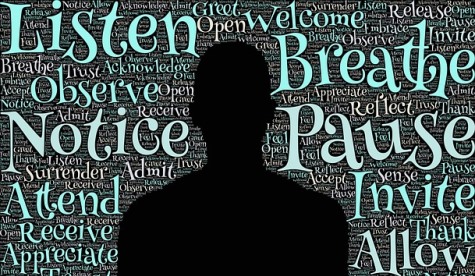“Every person I talked to said, ‘Oh, when you spoke to Fred, you felt like you were the only person in the world that mattered to him.’ It’s a gift; but it’s also a practice.” ~ Tom Hanks, regarding his role as Fred Rogers.
As counter-intuitive as it may seem, stepping-up your listening skills actually begins with self-awareness.
Self-aware people understand what motivates them and their decision-making. They recognize their feelings (as they happen) and how they affect their thoughts. They understand their strengths and weaknesses. Self-aware people understand their proclivity to bias and blind spots.
Hone Your Self-Awareness
How? I like the way Anthony K. Tjan described it in an HBR article when he referred to a trinity of self-awareness, “know thyself, improve thyself, and complement thyself.” You see, self-aware leaders are active truth-seekers who commit to intellectual honesty and surround themselves with different types of people who understand and complement each other. Individually and collectively, they develop social intelligence.
Develop a Practice of Mindfulness
Honing the skills of awareness requires mindfulness—becoming aware of what’s going on inside and around you on several levels. In its simplest form, mindful meditation is an intentional awareness of being, focusing on the breath. If, or rather, when a thought occurs during meditation practice, the person simply acknowledges the thought without judgement, and returns to a focus on the breath. The practice leads to living in a state of full, conscious awareness of one’s whole self, of other people, and the context in which we live and work. It provides a framework for social awareness.
Listen with Empathy
In Social Intelligence: The New Science of Human Relationships (Bantam, 2007), Daniel Goleman describes social awareness as a spectrum that runs from instantaneously sensing another’s inner state, to understanding their feelings and thoughts, and to “getting” complicated socials situations. Goleman lists these as:
- “Primal empathy: Feeling with others; sensing non-verbal emotional signals.
- Attunement: Listening with full receptivity; attuning to a person.
- Empathic accuracy: Understanding another person’s thoughts, feelings, and intentions.
- Social cognition: Knowing how the social world works.”
Whether they agree or disagree with what they are hearing, reading, or seeing, leaders who have stepped up their listening skills are fully receptive to the person communicating. They use active listening to signal their attunement. Self-aware listeners facilitate rapport with full, sustained presence, going beyond momentary empathy, similar to what they practice in mindfulness.
What do you think? How do your self-awareness and empathy affect your listening skills? I’d love to hear from you. You can call me at 561-582-6060, let’s talk. And as always, I can be reached here, or on LinkedIn.

Did You Enjoy This Article?
Join thousands of other smart business owners like yourself & get our Proffittable Times newsletter.
It's filled with actionable content you can apply immediately.
Sign up now to get started!
– Coach Nancy










